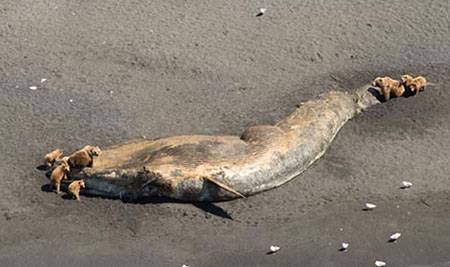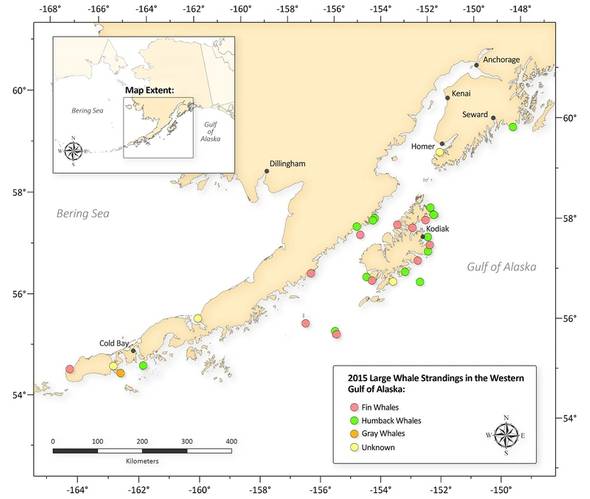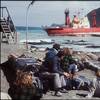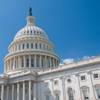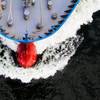The U.S. National Oceanic and Atmospheric Administration (NOAA) has declared the recent deaths of 30 large whales in the western Gulf of Alaska an "unusual mortality event," triggering a focused, expert investigation into the cause. An unusual mortality event is a stranding event that is unexpected, involves a significant die-off of a marine mammal population and demands immediate response.
Since May 2015, 11 fin whales, 14 humpback whales, one gray whale and four unidentified cetaceans have stranded around the islands of the western Gulf of Alaska and the southern shoreline of the Alaska Peninsula. To date, this brings the large whale strandings for this region to almost three times the historical average.
The declaration of an unusual mortality event will allow NOAA and federal, state and tribal partners to develop a response plan and conduct a rigorous scientific investigation into the cause of death for the stranded whales.
"NOAA Fisheries scientists and partners are very concerned about the large number of whales stranding in the western Gulf of Alaska in recent months," said Dr. Teri Rowles, NOAA Fisheries' marine mammal health and stranding response coordinator. "While we do not yet know the cause of these strandings, our investigations will give us important information on the health of whales and the ecosystems where they live. Members of the public can greatly assist the investigation by immediately reporting any sightings of dead whales or distressed live animals they discover."
Experts from the Working Group on Marine Mammal Unusual Mortality Events, which was established in 1991 and is part of the Marine Mammal Health and Stranding Response Program, determined that the high number of large whale strandings in the western Gulf of Alaska met the criteria for focused resources and research, and recommended the NOAA declaration.
The rigorous, collaborative investigation into these deaths will continue to involve scientists from NOAA and partner organizations, as well as members of the Alaska Marine Mammal Stranding Network. These kinds of investigations generally require months, or sometimes even years, of data collection and analysis, depending on the nature and duration of the event.





